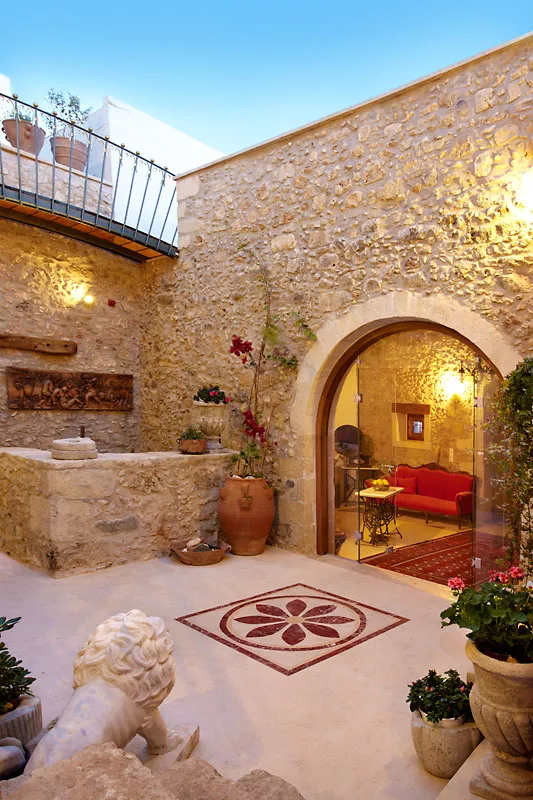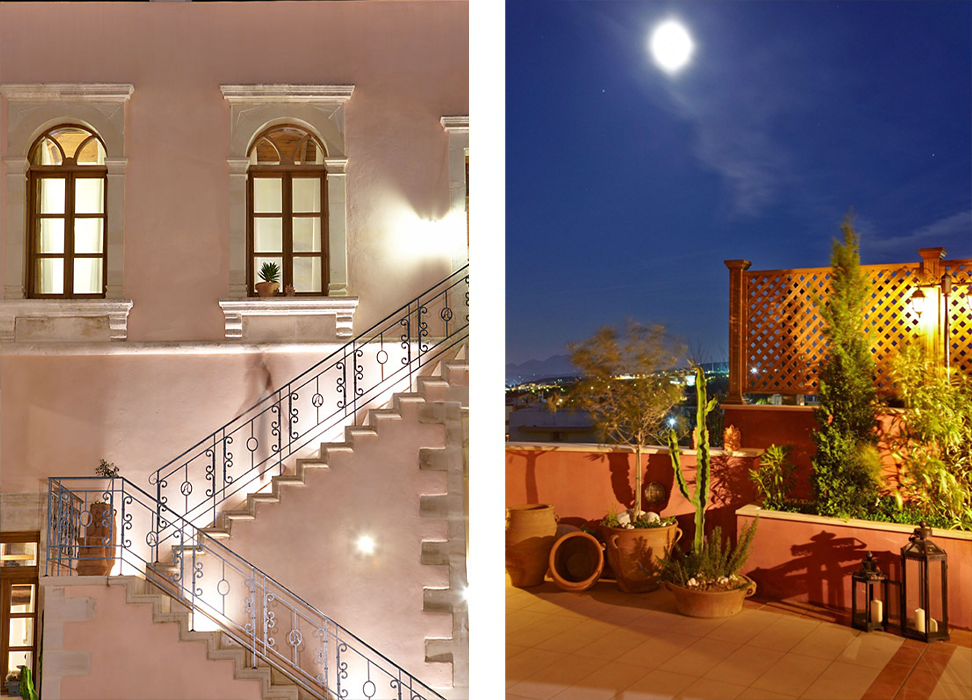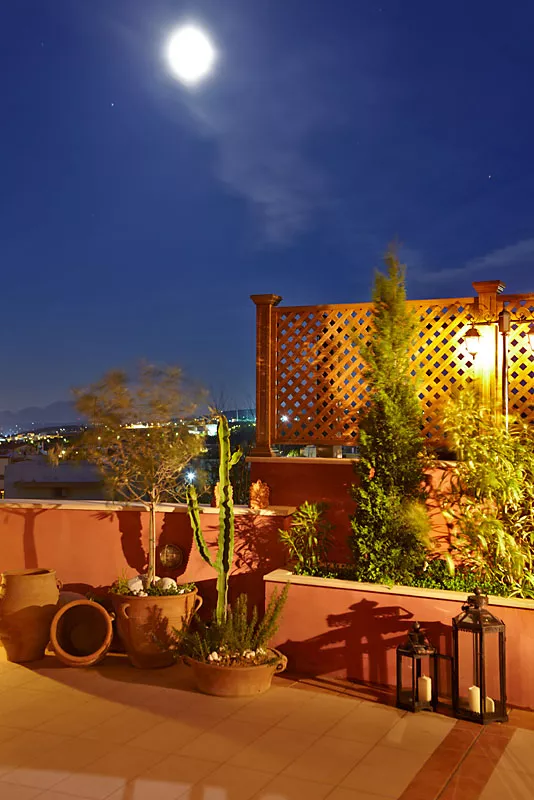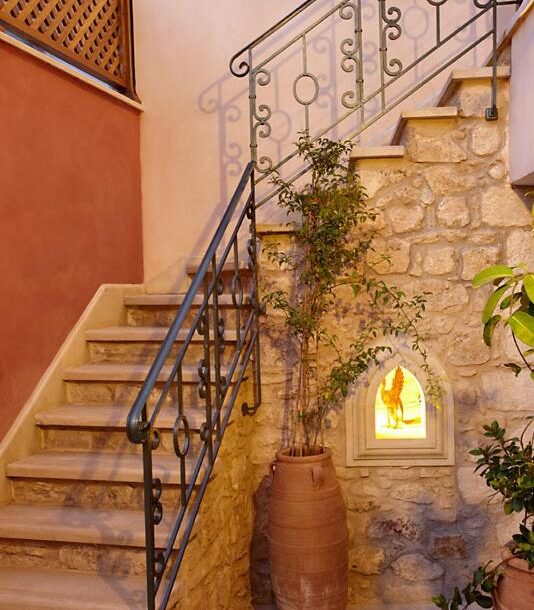Casa dell’ Aristea, is a newly renovated 15th century manor and small family run establishment situated in the village of Atsipopoulo at an altitude of 160m, a mere 6 km from the old Venetian town of Rethymno.
“Aristea” was the name of the original owner of the manor who often spoke to her grandchildren enchanting them with the tale of the beautiful fairy who lived in the house and watched over them and often was seen fluttering around in her white woven silk dress and her long flowing hair capped with a small wreath of flowers.
Great care and respect was taken to restore the manor to its’ authentic architectural grandeur and each of the seven wooden beamed apartments unique in style have been meticulously furnished for comfort and decorated with authentic delicate touches of yesteryear.
All our guests will experience a true Venetian atmosphere combined with contemporary comfort.
Special features:
The huge courtyard has a swimming pool with views towards the sea and Fortezza castle and is furnished with chairs, umbrellas & sun loungers.
Blue pool towels are also available.
Internet access available.
The Casa Dell’ Aristea during the summer months can also cater for small functions and events. In the small courtyard is the tiny church of St. George where Marriage ceremonies can be performed whilst the large courtyard is ideal to hold the wedding reception or any other small event.

History
![]()
“Aristea” was the name of the original owner of the manor who often spoke to her grandchildren enchanting them with the tale of the beautiful fairy
who lived in the house and who watched over them and was often seen fluttering around in her white woven silk dress and her long flowing hair capped with a small wreath of flowers.
George Papalexakis together with his wife Linda and their two sons Nikos and Giorgos live in the village of Atsipopoulo located in the suburbs of the Venetian town of Rethymno.George who is very talented and artistic, is also a distinguished maker of the Cretan Lyra – a traditional musical instrument.
He passed on his knowledge to both his two sons who have followed in this footsteps and proved themselves equally successful and talented in this traving having their own workshop in the town of Rethymno. Linda, who was born and brought up in Scotland, has over 30 years experience in the hotel industry.
Some years ago the family decided to purchase a very old and run down building in the village where they live, quite close to their own home. After an archaeological survey was made on the building, it was found that it dated back to the 15th century Venetian period and is now registered as a historical building. Many parts of the building very clearly show distinct Venetian features similar to those found today in the Fortezza castle in Rethymno.After a period of five very long years of careful renovation work, the results of this was well worth every effort made and this magnificent building was finally brought back to its original features ad thus the Casa dell’Aristea a traditional guesthouse was created.




Facilities
Each room is equipped with:
- Exclusive anti-allergic «Coco-Mat» natural mattresses.
- There is a small kitchen cornert with refrigerator, tea/coffee making facilities,
- Wall mounted colour SAT flat screen TV,
- radio/CD player,
- telephone,
- individually controlled air condition,
- central heating,
- safety deposit box,
- bathrobes,
- Slippers
- Hairdryer
- Shower/bath wash

The Area
The Village of Atsipopoulo constitutes one of the most progressive villages of the prefecture and some define it as a suburb of Rethymno.
The name of village emanates from the Arabic word “chatzip” meaning doorkeeper, guard and in certain documents it is named as “Chatzipopoulo”.
The location of village was of strategic importance and thus constituted gatehouse of Rethymno. Many battles were fought in Atsipopoulo during the Ottoman domination electing thus many brave warriors. In 1866 the village was destroyed by the Turks. From this area came many writers such as the writer and poet of the famous «Erofilis», and of the «Sacrifice of Abraham».
Today, Atsipopoulo offers a great deal to visitors, there are supermarkets and gift-shops, restaurants & tavernas, cafeterias & bar, hairdresser/Barber shop, Patisserie and a Bakers shop with fresh bread, rolls, rusks etc. there is even a Chemist.
In fact Atsipopoulo has almost everything to meet your daily needs. Wandering through the small narrow streets you will find so many elements from the Venetian and Turkish period.
- Rethimno, GR30°SunnySunMonTueWed31°C / 22°C
32°C / 23°C
32°C / 24°C
30°C / 24°Cpowered by Weather Atlas Our Address
Our Rooms

